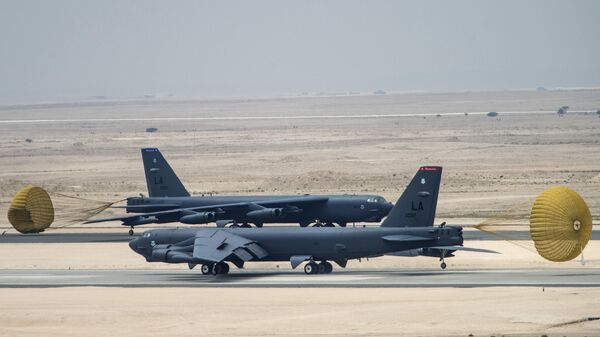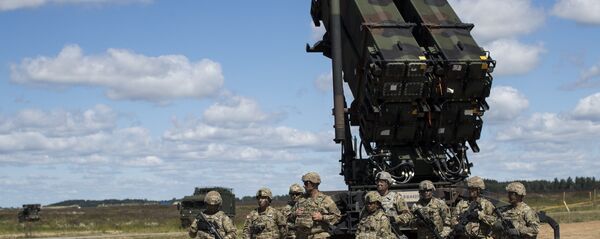The Pentagon doubled down on the deployment of its carrier strike group on Friday, saying it would beef up its Middle Eastern theatre command's assets with additional Patriot missile defence batteries, an amphibious assault ship full of Marines and an amphibious dock ship to complement the recently deployed USS Abraham Lincoln and several nuclear-capable B-52 strategic bombers.
Senior US officials have claimed that the troop buildup was a response to Iranian behaviour. Acting Secretary of Defence Patrick Shanahan called the carrier deployment a "prudent repositioning of assets in response to indication of a credible threat" by Iranian forces. National Security Adviser John Bolton said the move was a reaction "to a number of troubling and escalatory indications and warnings," and was aimed at sending "a clear and unmistakable message to [Tehran] that any attack on United States interests or on those of our allies will be met with unrelenting force."
However, in light of the vast network of bases that the US has surrounding Iran from virtually all directions, it's worth asking what the US's real goal is in the present escalation. Because even without those fresh deployments, the US already has thousands of troops surrounding the Islamic Republic.
The US Navy's 5th Fleet, whose area of responsibility includes the Middle East and North Africa, has at least 7,000 US troops at its permanent base in Bahrain. In Kuwait, meanwhile, the US Army's Central Command has its forward command post, where some 13,000 troops are stationed.
Abu Dhabi's Al Dhafra Air Base in the United Arab Emirates contains 5,000 plus US personnel, while Qatar's massive Al Udeid Air Base has roughly US 10,000 troops.
Along with the bases, the US has special forces troops operating in Yemen, while Iraq, Afghanistan and Pakistan station thousands more troops, although some politicians in Baghdad have recently threatened to evict the estimated 5,200 troops based in their country.
Along with the bases, the US also has access to a large series of smaller 'cooperative security locations', also known as 'lily pads' with 200 troops or less, as well as access to airfields and ports in countries including Oman, Saudi Arabia, Turkey and Egypt.
i wonder what pentagon PR flack came up with calling US military bases "lily pads" pic.twitter.com/lho3bWI9Ig
— no one you follow (@NerbieDansers) 29 января 2019 г.
On Saturday, Iranian Ambassador to the UN Majid Takht Ravanchi brushed aside US allegations about Iran posing a threat to US forces in the Middle East, accusing the Trump administration of using "fake intelligence."
"These are all allegations which are being produced by the same people who, in the run-up to the US invasion of Iraq, did the same," Ravanchi said, likely referring to John Bolton's role in pushing the invasion during his work as an adviser in the administration of President George W. Bush.
Given the presence of US troops at bases in virtually every one of Tehran's neighbours, perhaps it's Iran's leaders who should be the ones complaining about "credible threats" and "escalatory indications."
I guess Iran should surround our country with military bases and be normal like us pic.twitter.com/pIfb1Dcgqv
— The AnCap Barber (@BarberAncap) 9 мая 2019 г.





